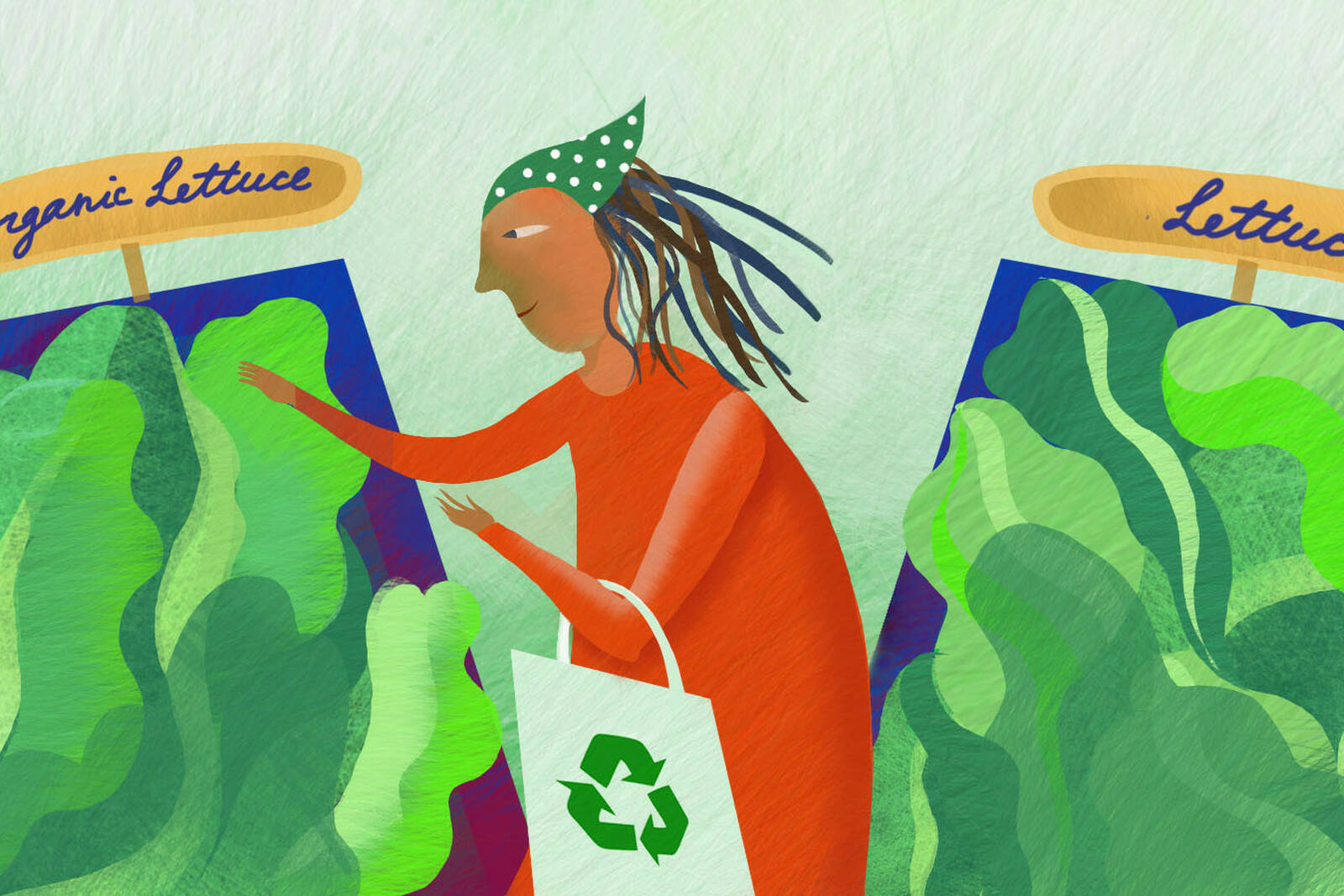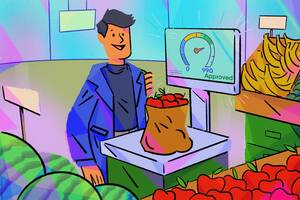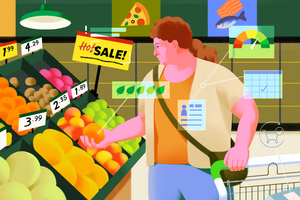Marketing Nov 14, 2023
The Surprising Role of … Surprise … in Hypocrisy
What makes a choice seem hypocritical? New research finds that unexpectedness is an important factor.

Jesús Escudero
Consider the politician who extolls family values and later gets caught having an extramarital affair. Or the coworker who announces they are anti-sweatshop and then knowingly purchases items produced under dangerous labor conditions.
Many would say such decisions, which violate morality-based positions, are highly hypocritical.
But if a person confidently says that dogs are the best pets to own and ultimately chooses to adopt a kitten, are they also a hypocrite?
Yes, say participants of a recent study led by assistant professor of marketing Jacob Teeny.
People appear to call others hypocrites not just because their actions go against a moral stance but because of the surprise observers feel about the decision. The more certainty someone expresses in a position, the more surprised people around them will be if they contradict that position—and the more hypocritical they will seem.
That unexpected finding—highlighting the role surprise plays in our view of hypocrisy—has implications for both how we judge others and how others could judge us.
“We can be very quick to call someone a hypocrite,” Teeny says. “But we should be aware of how surprise relates to how extremely we rate hypocrites. Just because it is surprising doesn’t change the act itself.”
Hypocrisy, morality, and surprise
Hypocrisy is generally defined as an inconsistency between a person’s stance and their subsequent behavior—in other words, saying one thing but doing another.
Violating a moral stance, though, can be judged as particularly egregious. Recent research has found that leaders who contradicted a moral stance were seen as more hypocritical than those who contradicted a pragmatic stance.
But Teeny was not so sure that morality itself provided the whole answer. For a different view, he looked to “decision affect theory”—how people’s expectations drive the strength of their emotional responses. For example, if you think a movie will be really good, and it ends up being mediocre, you will likely rate that movie lower than if you had gone in expecting it to be mediocre.
Teeny suspected that expectations might matter here, too. That is, what might be key to the enhanced hypocrisy of violating a moral stance is the person’s certainty about their beliefs. The stauncher someone is about a position they go on to violate, Teeny hypothesized, the more surprising is their behavior and therefore the more harshly their hypocrisy will be judged.
“We thought, is there a simpler explanation for how people judge hypocrites?” he says. “Are people just more surprised when others violate an attitude of certainty?”
Hypocrites might be just more surprising
In a series of experiments, Teeny and his collaborators—Richard Petty and Jaroth Lanzalotta of The Ohio State University—tested their theory.
In the first study, participants read a vignette about a man named Cody whose home state was voting on whether to legalize capital punishment. Half of the participants learned that Cody was opposed to the death penalty for moral reasons (it’s wrong to execute a prisoner), while the rest read that his opposition was practical (it’s too expensive to execute a prisoner). Then, they rated how difficult it would be to change Cody’s attitude.
Next, participants were told that Cody ultimately voted to allow capital punishment. At this point, they rated their level of surprise at his decision, as well as how hypocritical they found it.
“We thought, is there a simpler explanation for how people judge hypocrites? Are people just more surprised when others violate an attitude of certainty?”
—
Jacob Teeny
In line with previous research, participants who’d read that Cody’s opposition was based on morality rated his hypocrisy more harshly than those who’d read his opposition was based on pragmatics.
But, consistent with Teeny’s hypothesis, the moral opposition was also seen as more difficult to change—and more surprising. This provided tantalizing evidence that surprise is a key ingredient in why people see moral hypocrisy as particularly bad.
But how big of a role does surprise really play in our judgments of hypocrisy? Can it make us see hypocrisy even in non-morally charged situations?
Teeny and his coauthors devised new vignettes in which a man either strongly advocated for chocolate ice cream or took a less-firm stance in favor of the flavor. In both scenarios, the man ultimately served vanilla ice cream at a party.
Once again, surprise correlated to ratings of hypocrisy. Participants who read about the diehard chocolate fan found his actions more surprising and therefore more hypocritical than those who read about the ice-cream equivocator.
“There was no possibility that morality was involved in this decision,” Teeny says. “And our explanation still holds. It shows that morality alone cannot explain how people judge hypocrites. It shows that people who express certainty in their attitudes or state their opinion publicly signal that their opinion is hard to change. And when they change it, it results in surprise and a greater attribution of hypocrisy.”
To reduce your risk of being called a hypocrite, signal that you could change your mind
If certain attitudes lead to a higher rating of hypocrisy, the researchers wondered, would the opposite also be true? In other words, if a person had a malleable attitude and changed their stance, would observers be less surprised and therefore less likely to call them a hypocrite?
They tested that question in two final studies.
In the first, researchers described a historical (but fictional) culture whose perspective on morality was not so firm. That is, although nowadays we see moral beliefs as unchanging, this historical group supposedly changed their moral beliefs all the time.
Later in the vignette, a member of this culture went against a stated moral belief, and participants rated how hypocritical this person seemed. In line with expectations, when participants thought this culture treated morality as changeable, they rated the person’s contradictory behavior as less hypocritical.
In short, the experiment showed that “if we eliminate surprise by getting participants to believe that moral attitudes are very malleable, then we reduce the rating of hypocrisy as well,” Teeny says.
In a final study in the same vein, participants read about a man who was opposed to capital punishment, then voted for it. This time, however, some participants read that before the vote, the man had accidentally attended an event with speakers who explained why they morally supported capital punishment. Participants who received that additional context rated the man as less hypocritical than those who didn’t—even though he engaged in the same act of hypocrisy. Once again, this additional information lessened the surprise of a moral violation, reducing how hypocritical he seemed.
Be aware of surprise, but don’t let hypocrites off the hook
To be certain, surprise is not the only factor behind how harshly someone is labeled a hypocrite.
For example, people from cultures that encourage independence (such as the United States) tend to call out hypocrites more often than people from cultures that emphasize interdependence and a collaborative mindset.
Still, it’s clear that surprise plays a big role—something all of us should keep in mind before judging others. Is that person really a hypocrite, or are we just surprised by their actions? For example, if a CEO says one thing and then does another, is that leader behaving hypocritically, or did they just receive more information that caused them to change their mind?
“You might just be surprised by a decision because you don’t know everything that’s going on,” Teeny says.
At the same time, if a politician continually flip-flops until their constituents are no longer surprised by their hypocritical actions, there’s no need to give them a pass either.
“Be aware of the lenience that you’re giving,” Teeny says, “and know that it doesn’t necessarily mean they are being less hypocritical.”
Emily Ayshford is a freelance writer in Chicago.
Teeny, Jacob D., Jaroth V. Lanzalotta, and Richard E. Petty. 2023. “Understanding the Magnitude of Hypocrisy in Moral Contradictions: The Role of Surprise at Violating Strong Attitudes.” Personality and Social Psychology Bulletin.



